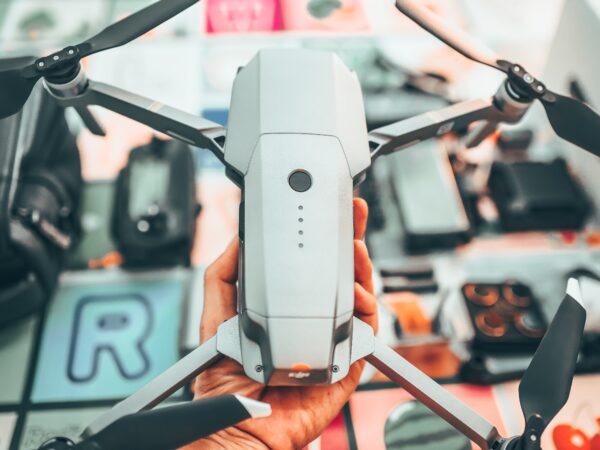As mobile technology continues to evolve rapidly, one of the key trends shaping the industry’s future is the implementation of 5G networks. 5G is the latest generation of mobile technology, promising enhanced speed, efficiency, reliability, and connectivity. 5G has been the talk of the tech industry for years, and its impact on mobile technology is becoming more apparent every day. In this article, we’ll take a closer look at the impact of 5G on mobile technology.
What is 5G?
5G stands for fifth-generation, marking the next step up from the previous generation of mobile technology, 4G. It’s a wireless communication standard enabling faster upload and download speeds, lower latency, and larger bandwidth for data transfer. 5G uses high-frequency radio waves, also known as millimetre waves or mmWave, which can transmit far greater amounts of data than previous cellular networks.
These millimeter waves are shorter than those used in cell towers so they need to be closer together. The increased number of antennas will enable smoother data transmissions across networks, addressing issues of network congestion, and ensuring reliable connectivity. Besides, 5G technology works in tandem with existing 4G networks and can be deployed as an add-on, as well as a standalone network.
While, 5G networks are still in development in some parts of the world, many countries have already launched 5G networks, and it has been fully implemented in others. Major mobile network providers are pushing forward with 5G deployments, and as more devices are introduced supporting the technology, the faster we’ll see the network spread worldwide.
5G’s Impact on Speed
One of the most significant impacts of 5G on mobile technology is speed. 5G networks can support 1 Gbps or even higher data speeds, which is significantly faster than 4G, which typically operates at around 100 Mbps. 5G speeds are so fast that you can download a full-length movie in just a few seconds. This increased speed has various applications in the mobile industry, from improved browsing, streaming, and gaming experiences to faster file downloads and uploads.
5G’s Impact on Network Capacity and Efficiency
5G has more bandwidth, enabling more devices to connect at once. It will allow businesses and individuals to have more devices on their network without experiencing congestion. Unlike 4G, which has fixed bandwidth limits, 5G utilizes dynamic spectrum sharing (DSS). This technology allows phone carriers to allocate unused 5G bands and provide instant access to more bandwidth to prevent network congestion.
5G’s Impact on Latency
Latency is the time it takes for data to travel from a device to a server and back again. 5G’s low latency, means there’s minimal delay in data transmission times. Its practical applications include enabling new types of gaming, such as cloud gaming, where the game is hosted on remote servers rather than on the device. XR (extended reality), which includes augmented and virtual reality experiences, is another use case for 5G where low latency enables real-time sensory feedback.
5G’s Impact on Battery Life
While 5G is an important development in mobile technology, one potential downside is that it is more energy-intensive than 4G. It requires more power to maintain connectivity due to the higher frequency sound waves it uses, and this can drain a battery faster. This potential disadvantage could encourage companies to develop smarter mobile devices that are optimized for battery performance, which in turn can lead to the development of new mobile technologies.
5G’s Impact on AI and Automation
5G networks are ideal for Machine Learning Automation (MLA) applications. MLA utilizes artificial intelligence (AI) to automate routine production processes for more efficient workflows. With the data capacity of 5G, machine learning algorithms can process data at much faster rates, more closely approximating human cognitive processing speed. Experts believe that 5G cellular networks will unlock significant potential for Machine Learning Automation using AI technologies in the enterprise and industrial sectors. However, This will result in even greater automation and efficiency, leading to faster and more cost-effective production.
5G’s Impact on Internet of Things (IoT)
The definition of the Internet of Things (IoT) states that it connects everyday devices, such as appliances and automobiles, to the internet to provide advanced functionality. By the end of 2021, experts anticipate that worldwide usage of IoT devices will exceed 35 billion. The lion’s share of these devices will be connect to the 5G networks. 5G has the potential to connect millions of IoT devices at once, making it an excellent infrastructure for IoT systems.
5G’s Impact on Remote Work
5G has the potential to revolutionize remote work. With the expected rollout of 5G, employees can work remotely with little to no issues. Remote workers will be able to download high-quality video and collaborate faster with colleagues in remote locations. However, low latency means they can communicate in real-time, making the work experience more seamless. The coming years will see the growth of 5G, leading to an increase in remote work capabilities and opportunities.
Final Thoughts
5G will undoubtedly have a significant impact on mobile technology, laying the foundation for exciting new innovations in the industry. With its promise of superfast speeds, reliable connectivity, and low latency,
5G has the power to enable new, innovative technologies in areas such as automation, IoT, and remote work. As 5G technology evolves, it will continue to shape the landscape of mobile technology in ways that we never imagined. We’re just at the beginning of the 5G era; we look forward to seeing its impact that crosses all industries in the future.











